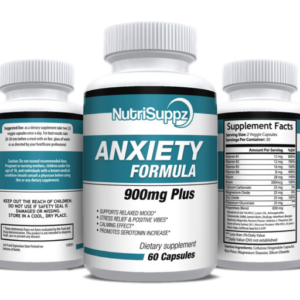16 Feb Anxiety Meaning
Anxiety Meaning
- Normal Anxiety:
- Occasional anxiety is a common human experience and can serve as a protective mechanism. It can motivate us to prepare for challenges, stay alert in potentially dangerous situations, and perform at our best. For example, feeling anxious before a job interview or a major exam is normal and can even enhance performance by sharpening focus and attention.
- Anxiety Disorders:
- Anxiety becomes problematic when it is excessive, persistent, and disproportionate to the actual threat. Anxiety disorders are mental health conditions characterized by intense and prolonged feelings of fear, worry, or dread that interfere with daily functioning. These disorders include:
- Generalized Anxiety Disorder (GAD): Persistent and excessive worry about various aspects of life, such as work, health, relationships, or finances, even when there is little or no reason to worry.
- Panic Disorder: Recurrent and unexpected panic attacks accompanied by intense physical symptoms such as chest pain, heart palpitations, shortness of breath, and a sense of impending doom.
- Social Anxiety Disorder: Intense fear of social situations or scrutiny by others, leading to avoidance of social interactions and significant distress in social settings.
- Specific Phobias: Irrational and intense fears of specific objects or situations, such as heights, spiders, flying, or enclosed spaces, which lead to avoidance behavior.
- Anxiety becomes problematic when it is excessive, persistent, and disproportionate to the actual threat. Anxiety disorders are mental health conditions characterized by intense and prolonged feelings of fear, worry, or dread that interfere with daily functioning. These disorders include:
- Physical and Psychological Symptoms:
- Anxiety can manifest through a wide range of physical and psychological symptoms, including:
- Physical Symptoms: Rapid heartbeat, sweating, trembling, dizziness, upset stomach, muscle tension, fatigue, insomnia, and shortness of breath.
- Psychological Symptoms: Excessive worry, irritability, difficulty concentrating, restlessness, feeling on edge, racing thoughts, catastrophic thinking, and feeling detached from reality.
- Anxiety can manifest through a wide range of physical and psychological symptoms, including:
- Impact on Daily Life:
- Chronic anxiety can significantly impair daily functioning, affecting performance at work or school, relationships, and overall quality of life. It may lead to avoidance of certain situations, social isolation, substance abuse, and other mental health issues like depression.
- Treatment and Management:
- Effective treatment for anxiety disorders typically involves a combination of psychotherapy (such as cognitive-behavioral therapy) and medication (such as antidepressants or anti-anxiety medications). Lifestyle modifications, stress management techniques, relaxation exercises, and social support also play important roles in managing anxiety.
Understanding the various dimensions of anxiety meaning is crucial for recognizing when it becomes problematic and seeking appropriate support and treatment. It’s essential to remember that anxiety disorders are treatable, and with the right interventions, individuals can learn to manage their symptoms and lead fulfilling lives.


No Comments